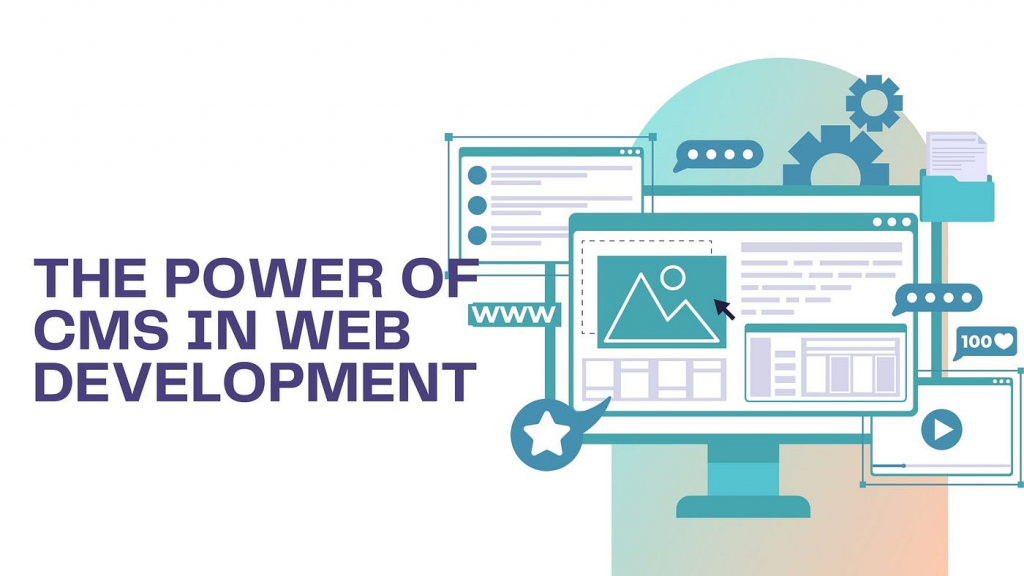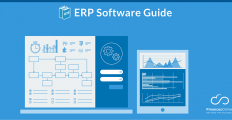
The creation of web content and its management have grown to be of utmost importance for businesses, blogs, and institutions due to the advent of the digital age. With the rise of the digital sphere, the importance of efficient web development tools has grown in recent years. Undoubtedly, one of the most important parts of this is the content management system (CMS). But what exactly is a content management system, and why is it so important to incorporate one into modern site design? This essay goes into further detail about the crucial part that content management systems play in the current web ecology.
1. Defining the Content Management System (CMS)
A content management system (CMS) is not limited to the management of written content; rather, it is an all-encompassing solution that closes the gap between database management and the experience of the end user. It offers a cohesive platform in which elements such as text, graphics, media files, and other digital assets can coexist together. “CMSs can handle the simultaneous management of many forms of material because they incorporate sophisticated design ideas. In addition, content management systems (CMS) platforms frequently make use of backends based on PHP,.NET, or Java. These backends enable dynamic content presentation based on the input or preferences of the user” says, Lisa Ockinga, Chief Product Officer at Ling App
2. Democratization of Web Development

It is impossible to overstate how significant the broader consequences of this democratization are. CMS platforms level the playing field in the digital world because they do not require users to possess any particular skills. They give individuals, non-profit organizations, small businesses, and schools the ability to communicate their opinions online with the same fervor as major corporations do. “The rise of websites is only one aspect of this transition. Because of the ease of use that CMS provides, there has been a rise in online education, independent journalism, and e-commerce. This is because more people can share their expertise, report on local events, or create enterprises without being hindered by technical constraints” asserts, Josh Thill, Founder of Thrive Engine
3. Efficient Content Management and Organization
Because of the tremendous rate at which content is being produced in the digital world, the organizing capabilities of a CMS are essential to preventing digital clutter. “The most sophisticated content management systems (CMSs) are equipped with taxonomy features that enable deeper content classification. For instance, a travel blog could classify its postings according to the nation, city, activity kind, and time of year, making it easier for readers to locate the specific content that piques their interest. Many content management systems (CMSs) also include AI-driven capabilities to automatically categorize and tag information, which further streamlines the organizing process” adds, Graham Grieve, Founder of A1 SEO
4. Seamless Integration with Digital Tools

“The integration abilities of prominent CMS platforms are demonstrated by the expansive ecosystems that have grown around them. These platforms are not stand-alone systems but rather hubs that can connect to other applications such as CRM software, email marketing platforms, payment gateways, and more. This synergy enables organizations to build interconnected digital experiences, in which a user’s involvement on one platform (such as social media) can easily move to the website, maintaining continuity and increasing the level of user engagement” says, Paul Phelps, Managing Director at SOLENT POWER
5. Enhanced Collaboration and Workflow
In its most basic form, content management system platforms are collaborative centers. In addition to facilitating the production of material, they make it possible for editorial oversight to take place, which means that articles and other forms of content can be reviewed, amended, and authorized before being made public. “Workflow systems can automate these procedures and deliver alerts to the appropriate members of the team if action is required. Some content management systems (CMSs) also include a chat feature or other communication tools. This enables teams to discuss material directly within the CMS, doing away with the need for additional external communication tools”, says, Rhodes Perry, Owner of IceBike
6. Scalability for Growing Needs
The modular architecture of many content management system (CMS) platforms ensures that these systems are inherently expandable. Consider a content management system (CMS) to be similar to a Lego set. You might begin by building a simple house, but as you gather more bricks (features, plugins, and content), you can add to it and turn it into a mansion without having to demolish the initial construction. Because of this adaptability, companies are not likely to outgrow their CMS but rather will change along with it.
7. Ensuring Web Security and Compliance
Websites face a variety of issues, including data breaches, DDoS assaults, and malware, in addition to traditional dangers such as hacking. “The most advanced content management systems (CMS) come equipped with multiple layers of protection, such as firewalls, two-factor authentication, and intrusion detection systems. CMSes also give capabilities for data management, which enables websites to handle user data in a responsible, safe, and transparent manner. This is particularly important as privacy laws around the world are getting more stringent” asserts, Gerrid Smith, Head of Communications at TEXAS PROPERTY TAX LOAN PROS
8. Flexibility in Design and Aesthetics:
One of the most remarkable characteristics of many content management systems (CMS) is its capacity to conform to a wide variety of design needs and preferences. The current content management system (CMS) comes with pre-designed templates, but users are not restricted to using those templates. “The appeal of a content management system (CMS) lies in the fact that it enables a high degree of personalization, making it possible for individuals and companies alike to leave their distinctive digital imprint on the web. According to Clara Stanton, Lead Designer at WebFlow Creations, “while templates provide a quick start, the ability to customize layouts, typography, color schemes, and more ensures that the final product truly resonates with the brand’s identity.” although templates provide a quick start, the option to adjust layouts, typography, and color schemes ensures that the final product truly resonates with the brand’s identity.
9. Streamlined Content Updating and Revision:
It is just as important to keep the content of a website up to date as it was when it was first created. In this respect, content management system platforms shine due to the user-friendliness of their content revision and update procedures. “When the world shifts or a brand develops, websites need to reflect these changes to remain relevant. If you use a content management system (CMS), making changes to your website – whether they are basic edits to the text on a page or extensive redesigns of the entire site – will be a much easier and more time-effective process. According to Jordan Nguyen, Content Strategist at Digital Dynamics, “In addition, with version control features, one can easily revert to previous iterations, ensuring that mistakes or unwelcomed changes are never made permanent.”
The Indispensable Function of Content Management Systems in Website Development
The advent of the digital age has resulted in the proliferation of a wide variety of tools and platforms that facilitate web creation. Among these, content management systems stand out due to the friendliness they offer to users, the adaptability they offer, and their ability to scale. A CMS provides the basis for developing and maintaining content efficiently, and it does not matter if the website in question is a personal blog, a business website, or an online store. The content management system (CMS) continues to play an important role in the development of modern websites, even though the digital landscape is constantly shifting and adapting.























Leave a comment!